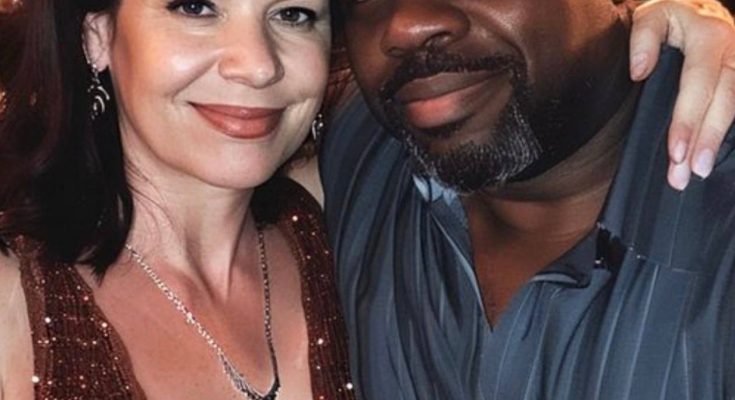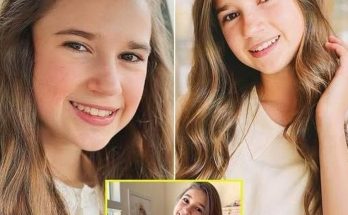For years, my husband John had staunchly opposed having biological children with me, which puzzled me given my deep yearning to start a family and his alternative proposal for adoption. One evening, after our tensions had peaked, I accidentally heard a phone conversation that shattered my perceptions and exposed the deep-seated anxieties behind his devastating stance.
I was sitting on our front porch, lost in thought as I watched neighborhood children play. The ache for my own child intensified, thinking about my unfulfilled dream with John. We had been together for six years, and with each passing year, my longing to have a child only deepened.
“Why won’t he have a child with me?” I pondered quietly. Memories flooded back of numerous discussions where John had flatly declined.
Despite being a devoted husband, the topic of children always sparked strain between us. He even suggested adoption, which puzzled me further. “Why is he inclined to adopt rather than have our own?” I questioned.
In the initial blissful years of our marriage, John and I were thick as thieves — traveling, sharing hobbies, and filled with laughter. However, as time progressed, my desire for a family grew, while John’s reticence became more pronounced.
“Do you remember when we would chat about baby names?” I brought up one evening. John forced a smile but quickly diverted the conversation. Each avoidance sank my heart further.
Our disputes over starting a family became more frequent and intense. Desperation set in for me, and John’s persistent recommendation of adoption only added to my confusion.
“John, why can’t we discuss this openly?” I implored one night.
“It’s just not the right time,” John answered, averting my gaze.
“Is it me? Do you think I wouldn’t be a good mother?” I inquired, my voice breaking.
“No, Lisa. It’s not you,” John responded gently, yet he offered no further explanation. My feelings of rejection and confusion grew.
One particularly intense evening, our argument escalated.
“Why won’t you just be honest with me, John?” I exclaimed.
“You wouldn’t understand!” John retorted sharply, his cheeks reddening with frustration.
“Then help me understand!” I insisted. But John merely shook his head and left the room.
I stormed out, drove around aimlessly to clear my head, and returned home after an hour, still uneasy.
As I entered, the house was silent. Approaching the living room, I overheard John on the phone.
“Mom, I’m at a loss,” John confessed despairingly. “Lisa is so eager for a baby.”
My heart raced as I quietly sat down, straining to listen.
“How do I tell her that I don’t want our child to end up as troubled as I am?”
I was stunned. What did he mean? Although John spoke more softly now, his words were clear.
“I can’t take that risk,” he continued. “I love her too much to potentially cause her pain.”
My mind whirled with confusion and fear. What secrets was John hiding? Why did he consider himself troubled? My emotions swirled with dread and sorrow.
After the call, John ended the conversation and hung up. I remained seated, overwhelmed by my thoughts. I knew I had to confront him, but first, I needed to understand the full extent of the truth.
I found John in the living room later, looking dejected but managing a weak smile.
“Hey,” I greeted, feigning normalcy. “I just needed some fresh air earlier.”
“It’s okay,” he replied, visibly relieved. “Want to watch something together?”
“Sure,” I agreed, though my mind was elsewhere. I needed more clarity before I could address the bombshell I’d just heard.
That night, I couldn’t sleep, haunted by John’s words: “As troubled as I am.” What did that mean? The next day, driven by a need for answers, I rummaged through old medical files in our study and discovered a document highlighting “Huntington’s.” My heart sank.
Memories of our past conversations about his father’s illness, John’s odd reluctance about our future, and his insistence on adoption suddenly made sense. The possibility of a genetic disease loomed over us, casting a shadow on our dreams.
I realized the heavy burden John had been carrying alone. Why had he kept this from me? I felt a mixture of fear, anger, and sadness.
John had been silently enduring, shielding me from this heartbreaking reality. I knew it was time for an open conversation to understand his fears and contemplate our future together.
Later, in the kitchen, I approached John, who seemed lost in thought.
“John, I found the medical report,” I said gently. His reaction was one of shock and avoidance.
“Why didn’t you share this with me?” I asked, tears welling up.
“I didn’t want to frighten you,” he murmured, shaking. “I’m terrified, Lisa. Huntington’s is cruel. I couldn’t stand the thought of our child possibly suffering.”
Tears streamed down my cheeks as I grasped the depth of his love and the pain he’d been hiding. “We should have tackled this together,” I declared, voice choked with emotion. “You shouldn’t have faced this alone.”
John held my hand tightly, his touch tender yet firm. “I’m sorry, Lisa. I thought I was protecting you. I didn’t want you to fret over something we couldn’t alter.”
We embraced, allowing our unspoken fears and secrets to dissolve in our mutual understanding. Our conversation deepened our bond, revealing that John’s hesitations stemmed from love and a desire to protect. He didn’t want any child of ours to endure what he might face. I realized then that adoption was our path to family—a journey we could embark on together, free from the shadows of genetic concerns.
“Let’s adopt,” I suggested, squeezing his hand. “We can provide a loving home and build the family we’ve always wanted.”
John’s eyes, filled with tears of relief and hope, met mine. “Are you sure?” he asked, voice quivering.
“Yes,” I affirmed. “We’ll face everything as a unit. We’ll navigate this together.”
As we started planning, exploring adoption agencies, and envisaging our future as parents, the dream of raising a child became tangible again, this time illuminated by hope rather than overshadowed by fear. Our discussions brimmed with excitement as we prepared for our new chapter. Finally, we were ready to sign the adoption papers.
Reflecting on our journey, I recognized the importance of communication and trust. Our love had proven resilient enough to surmount any obstacle.
We had confronted a daunting truth and emerged stronger, prepared to foster a hopeful future as a family. Together, we would embrace the joys and challenges of parenthood, bolstered by our commitment and love.
As we advanced, I knew we were not merely planning for a child. We were laying a foundation of honesty and strength that would sustain us through any future challenges.
We were poised to embrace our future, not with apprehension, but with anticipation and love, confident that together, we could surmount any obstacle. Our family would be founded on love, understanding, and an indomitable bond.



